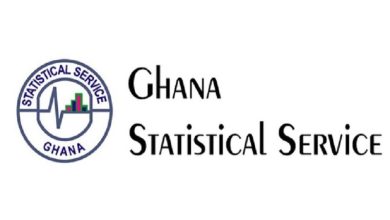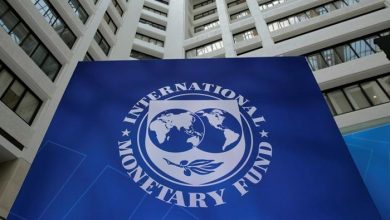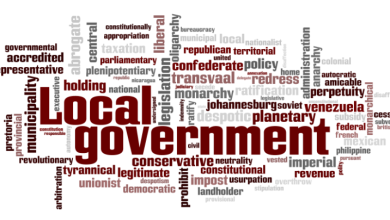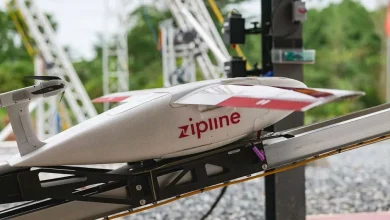IEA Calls for Pause on Tullow Oil License Renewal Process

The Institute of Economic Affairs (IEA) has called on the Government of Ghana to immediately halt the ongoing process to extend the petroleum licences of Tullow Oil and its partners beyond the original expiration date of 2036.
The move follows confirmation of a Memorandum of Understanding between the government and the oil firm that would push the licences’ validity to 2040.
In a statement issued Monday, June 16, 2025, the policy think tank described the move as inconsistent with Ghana’s commitments to reform extractive sector governance.
The IEA is urging the government to use the remaining years under the existing agreement to reset the fiscal and legal structure governing upstream oil production in line with global best practices.
“The Institute of Economic Affairs (IEA) has followed with keen interest recent reports that the Government of Ghana has signed a Memorandum of Understanding (MoU) to extend the Petroleum Licenses of Tullow Oil and its Partners until 2040. The IEA considers this decision to lack good faith, transparency, probity, and accountability, and to be starkly at odds with the Government’s own commitment to reset and strengthen governance of the extractive sector,” part of the statement read.
The IEA’s position comes against the backdrop of long-running tax and arbitration disputes between Ghana and Tullow. Among the contentious issues is a USD 320 million Branch Profit Remittance Tax assessed by the Ghana Revenue Authority (GRA), which Tullow successfully challenged at the International Chamber of Commerce (ICC) in London.
The tribunal not only ruled in Tullow’s favour but also ordered Ghana to cover legal and administrative costs, with accrued interest.
“It is a matter of public record that Tullow’s operational relationship with Ghana has been riddled with challenges, including a series of high-profile international arbitration disputes that casts a shadow of doubt over the existing Petroleum Agreement
“A notable instance occurred when the Ghana Revenue Authority (GRA) assessed a Branch Profit Remittance Tax (BPRT) liability of USD 320 million against Tullow for the period 2012–2016, following a thorough audit. Tullow refused to comply and challenged the claim through international arbitration.
“In the ensuing proceedings under the terms of the Petroleum Agreement, the International Chamber of Commerce (ICC) in London ruled in favour of Tullow. The London-based ICC held that Tullow was not liable to pay the USD 320 million tax liability and further directed Ghana to pay substantial legal and arbitration-related costs, including GBP 1,946,589.44, USD 294,228.72, and USD 574,000.00 in tribunal and ICC fees—with interest accruing at 5% per annum until payment is made in full,” the statement detailed.
The think tank also cited another unresolved GRA tax claim of USD 387 million, linked to disallowed interest deductions, which Tullow has again referred to international arbitration.
Arguing that the current concession framework is outdated and skewed against national interest, the IEA recommends a shift toward service contracts similar to those used in countries like Norway and the United Arab Emirates.
Under that model, the state retains ownership of oil resources while private firms operate on a fee basis allowing for stronger public control and improved fiscal outcomes.
The group highlights the disparity between the United Kingdom and Norway’s earnings from similar offshore production volumes as an example of how contractual models and governance structures can drive national revenue performance.
Norway’s approach, which includes a state-led framework, yielded nearly three times more per barrel and helped build a sovereign wealth fund now valued at over USD 1.4 trillion.
“Government must immediately halt efforts to extend the license of Tullow and its partners in the West Cape Three Points and Deepwater Tano Blocks. Instead, the existing colonial-era contract should be thoroughly reviewed and restructured into a service contract akin to those in Norway, Saudi Arabia, Dubai, Qatar, Oman, and Abu Dhabi—contracts which vest control in the state while leveraging private sector expertise. The current colonial contract will never inure to the benefit of Ghana and its citizens.
“The experiences of the United Kingdom led by the private-sector and Norway by the state, offer valuable lessons. Both began offshore oil exploration in the North Sea Basin in the 1960s and have produced similar volumes of oil—approximately 42.8 billion barrels for the UK and 40 billion barrels for Norway.
“Despite similar geology and identical resource base and production levels, by 2014, the UK earned only USD 11 per barrel, while Norway earned USD 29.8 per barrel—nearly three times as much. Total revenues stood at USD 470 billion for the UK and USD 1.197 trillion for Norway. Norway further invested these proceeds into a sovereign wealth fund—now valued at over USD 1.4 trillion, the largest in the world,” the statement added.
With Tullow’s current licenses still valid for another 11 years, the IEA insists that Ghana is now in a better negotiating position than it was at the time of the original deal and must not rush into extending terms that have already proven costly.
The IEA is urging President John Mahama to use his administration’s reform mandate following the 2024 electoral victory to initiate a comprehensive overhaul of the petroleum sector’s fiscal and governance architecture, including process reforms for negotiating and approving future agreements.










